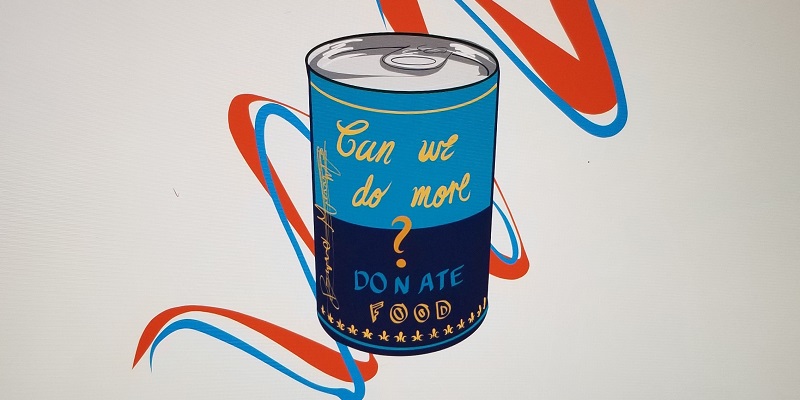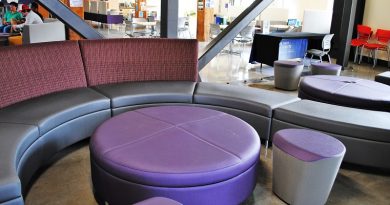Efforts made to combat student food and housing insecurity
There are members of the UW Tacoma community that are trying to combat the unmet food and housing needs of some students as they pursue their education. Christine Stevens, an associate professor in the UWT nursing and healthcare programs, realized in 2013 that the needs of students in her class weren’t being met. This motivated her to distribute surveys through Catalyst to all UWT students to figure out what needs pertaining to housing and food insecurity were or were not being met.
“I did a survey for the entire UWT, and found out that 32 percent of the students at UWT were skipping meals or were not able to afford meals even though they were working full time and had full financial aid,” Stevens said. “Ten percent of the students met the criteria for homelessness.”
The results of this study led to Stevens asking for help, but she was often met with the inability and sometimes unwillingness of others to assist.
“It was a different administration,” Stevens said. “At the time they said, ‘If [students] can’t afford food and housing, maybe they shouldn’t come.’ I was so angry I couldn’t breathe.”
She continued to seek help.
“I went to other people on campus,” Stevens said. “I went to the community. They said, ‘We would like to help out, but we can’t feed our own people.’ Then I went to the Center for Equity and Inclusion and I said, ‘Here is the data.’ They said, ‘Great.’ In that moment we cleaned a closet and started the food pantry.”
Program Support Supervisor in the Office of Equity and Inclusion, Nedralani Mailo, oversees the UWT food pantry, which is called “The Pantry.” According to Mailo, spreading awareness is the key way to help students who utilize The Pantry.
“I believe the best way to engage our campus to help students who may be facing food and housing insecurity is through bringing awareness of The Pantry,” Mailo said.
For those wanting to provide resources, making donations that allow for flexible purchasing is also helpful. Flexible purchasing allows The Pantry to provide food that can meet diverse dietary, cultural and living situations.
“Although we are always accepting of food and item donations, monetary donations will help us tremendously so that we can buy items that students are asking for directly,” Mailo said.
Campus administration has provided alternative ways to donate to The Pantry by providing a direct donation link where people can use a credit card or PayPal. Faculty and staff members can also elect to donate part of their salary to The Pantry.
The Pantry is continuing to grow, including a newly purchased refrigerator and freezer. Mailo said that this has broadened their options.
“Now that we have a freezer, we are able to provide more variety of items for students such as frozen meals, frozen vegetables and possibly meat options for the future,” Mailo said.
Stevens saw The Pantry as a great first step, but she felt that more had to be done.
“Food is one thing,” Steven said. “That is just symptom of the problem. School is not affordable and people are struggling. We promise in getting that degree that you get a better life, but financial aid doesn’t cover everything.”
With the help of former Executive Vice Chancellor Melissa Lavitt, Stevens wrote grants to get a social worker on campus to help students. From this, they brought on Roseann Martinez who has a background in social work and is now the assistant director for student advocacy and support.
In her role, Martinez meets with students and helps connect them with resources. Following these meetings, surveys are sent out those who fill out a referral form. Based on the surveys that Martinez has gotten back, stable and secure housing is one of the top issues that students are struggling with.
“If I were to extrapolate from [surveys] the highest need is housing, affordable housing,” Martinez said. “People aren’t sleeping on the streets, but they are in substandard situations.”
Martinez hopes that her office can offer more shared housing as an option for students. There is currently not a system in place for those that want to offer temporary or shared housing to students who need it.
“We don’t have a mechanism to respond to that right now,” Martinez said. “So, what we’ll be able to do is to tell [those offering housing] to go through shared housing and indicate that you want to be a UWT housing placement. My idea is that we would have range of opportunities [in terms of short-term and long-term housing].”
Martinez will have two graduate student interns from the social work program working with her this year to design a shared housing model similar to what she envisions.
To collect more information on challenges that students may be facing, a survey was distributed in winter quarter 2018 across the three UW campuses. Along with some similar questions from the 2013 survey, the new survey went more in depth on housing issues and ability to succeed at school.
“We wanted to know more about the ways people get into not having stable housing, housing costs, why housing situations are left,” Stevens said. “We also asked a series of questions surrounding food insecurity. Then we looked at other issues that affected [students’] ability to eat, textbooks and other things involving school.”
Stevens also reached out to the student body for their input to improve the survey prior to sending it out.
“I went to a lot of student groups and they asked me to put certain things on the survey so that we would have [resources for] them at Tacoma,” Stevens said.
Tacoma had the highest return rate of surveys with 21 percent of students responding, compared to the 18 percent return rate from Seattle and 11 percent from Bothell.
The researchers in charge of the survey are still working through the estimated 7,000 responses and trying clean up the data before they begin to make determinations. Although not finished with the data, Stevens already has an idea of what she wants to do with the results.
“As soon as we do have the data cleaned up, my goal is to get all of that data out to UWT people who can use it,” Stevens said. “I am also sending it to legislatures so that they can start to think about financial aid. I am thinking policy level, specifically for our campus and everything we do on our campus.”







